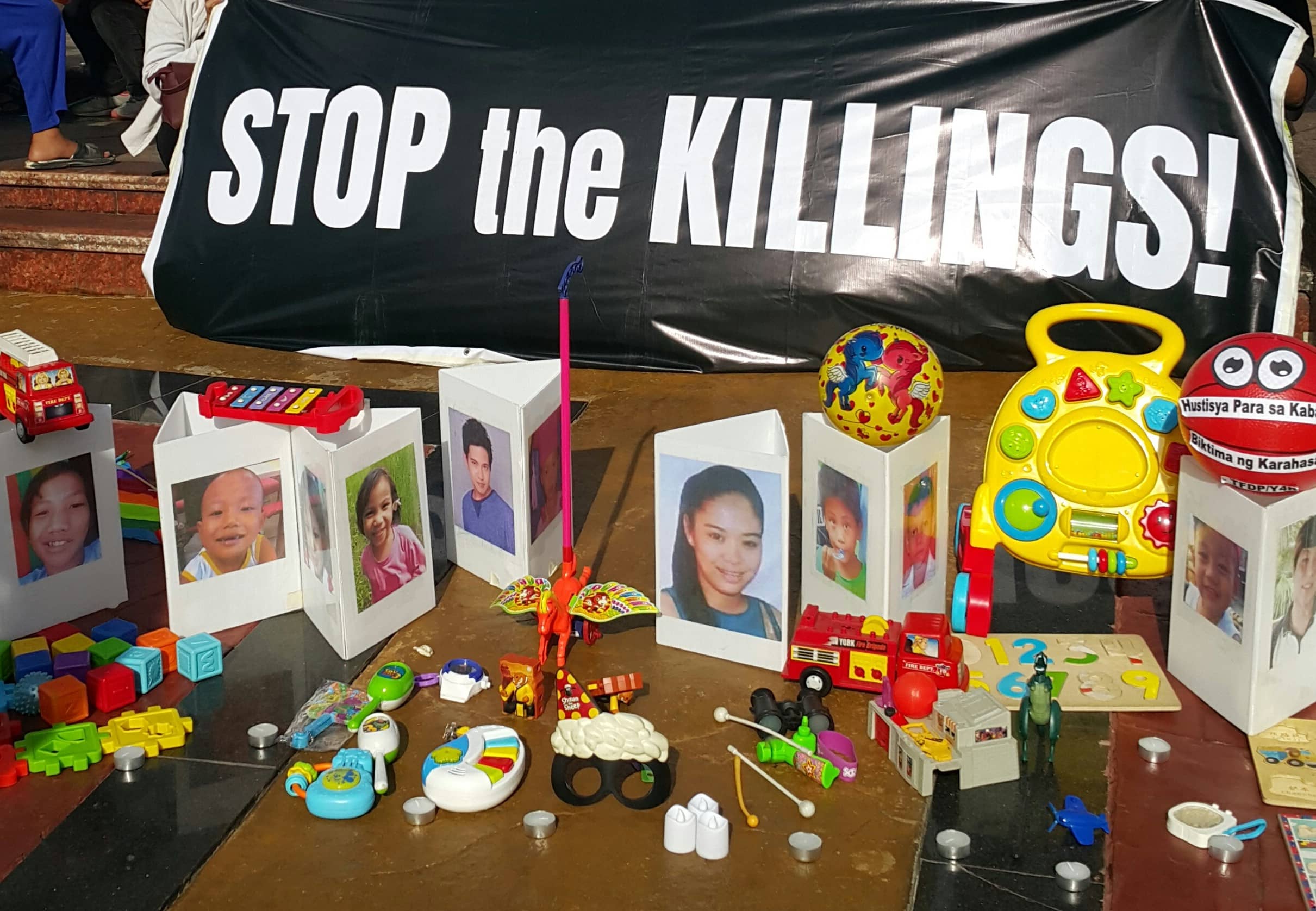
Justice Secretary Menardo Guevarra reported to the United Nations Human Rights Council on Wednesday regarding his initial findings on the extrajudicial killing of drug suspects in the government’s war on drugs. Guevarra mainly highlighted police errors and operational breaches in anti-drug operations in Metro Manila, Bulacan, Pampanga and Cavite, including failure to follow protocol in processing crime scenes and lack of ballistic and paraffin examinations.
It audaciously glossed over the widescale failure to follow protocol and proper procedure by security forces and skipped mentioning the overall policy which directed these killings, then created the environment of impunity for the perpetration of these crimes, downgrading the systematic and brazen disregard for rule of law into individual lapses of judgement by a few bad elements in law enforcement.
Operation Double Barrel, launched by the national police at the prompting of President Duterte, obliterated the rule of law, targeted specific members of the Philippine population for extermination, and violated Constitutionally guaranteed human rights.
Guevarra’s report not only deflects accountability from the President but misrepresents summary executions in the Philippines as mere procedural failures, while maintaining the illusion that domestic mechanisms are intact. This despite the glaring lack of conviction and censure with the mounting death toll from the so-called war on drugs that has abated little in spite of the pandemic.
President Duterte repeatedly promised executive clemency to police should they be convicted of crimes in the conduct of the war on drugs; Duterte encouraged community residents to kill neighbors who use drugs; Duterte issued unverified narco-lists of alleged top drug lords, following which several named therein had been “neutralized” mostly by unknown gunmen.
In his 2020 State of the Nation address the president reiterated that the government will combat COVID19 “with the same fervor as our campaign against illegal drugs, criminality, insurgency…” indicating the continued overarching policy of heavy-handed, repressive measures against violators of local quarantines. According to Human Rights Watch killings went up 50 per cent during the lockdowns.
Now there are attempts to apply aforementioned Operation Double Barrel (Oplan Tokhang) against 'left-leaning personalities and organizations' in the northern provinces, sparking concerns of escalated EJKs and human rights violations if enforced. Despite Guevarra’s report of official failures and lapses in the Oplan’s operations, the policy is in full gear, and remains the central theme of Duterte’s governance.
These, along with the government’s non-transparency in its so-called inquiry, the exclusion of families of victims of extrajudicial killings, the Commission on Human Rights and civil society, and most of all the deafening silence in the halls of justice for the more than 30, 000 cases of summary killings, betray the hollow efforts of the Justice department to escape international accountability.
Immediately, in light of the DOJ report, nothing less than the total revocation of Oplan Double Barrel, the prosecution of the perpetrators of extrajudicial killings, providing justice to victims’ families, and the overhaul of the national drug policy towards a rights-based and humane approach, can indicate steps in the right direction.





